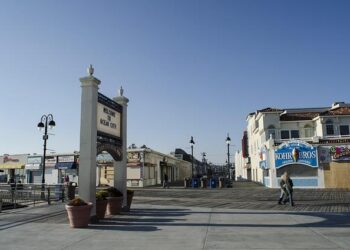How Harvard’s International Student Restrictions Could Influence Belgium’s Future Queen
In a surprising development with potential global repercussions, recent changes in U.S. higher education policies may intersect with the future of Belgium’s monarchy. Harvard University’s newly imposed restrictions on admitting international students have ignited intense discussions worldwide, raising concerns about their impact on prominent figures such as Princess Elisabeth, the heir to the Belgian throne. As Belgium’s first female successor, her academic and international engagement prospects could face unforeseen challenges due to this policy shift. This article delves into how these educational restrictions might affect Princess Elisabeth’s studies and explores broader consequences for diplomatic relations and royal representation in an interconnected world.
The Future Belgian Monarch Amidst Shifting International Education Policies
Harvard University’s decision to curtail admissions for foreign students marks a significant change that could reshape educational experiences for many—including members of European royal families like Belgium’s future queen. The presence of diverse student bodies enriches learning environments by fostering cross-cultural dialogue and broadening perspectives—elements essential for leaders expected to operate on a global stage.
Educational experts warn that limiting international enrollment risks narrowing intellectual horizons, particularly for royals who traditionally serve as cultural ambassadors and diplomatic bridges between nations. Key areas potentially affected include:
- Global Networking: Reduced interaction with peers from various countries may limit opportunities to build influential relationships vital for future leadership roles.
- Cultural Awareness: Immersion in multicultural settings cultivates empathy and nuanced understanding—qualities indispensable for modern monarchs.
- Cognitive Diversity: Homogeneous classrooms can dampen creativity and critical thinking skills necessary to address complex global challenges.
The Broader Diplomatic Ripple Effects: Implications Beyond Borders
This restriction at one of the world’s leading universities extends its influence beyond academia into international diplomacy, especially affecting countries like Belgium that have long championed educational exchange programs as pillars of soft power diplomacy. The prospective queen is part of a royal lineage deeply invested in fostering global partnerships; thus, barriers hindering access to premier institutions threaten these foundational ties.
The consequences also touch economic sectors reliant on diverse talent pools nurtured through such exchanges. With Belgium integrated into intricate global supply chains across technology, healthcare innovation, arts, and academia, diminished access to elite education abroad could exacerbate skill shortages within critical industries—potentially weakening the nation’s competitive edge internationally.
| Sector | Potential Consequence |
|---|---|
| Technology | Diminished influx of cutting-edge ideas from diverse innovators |
| Healthcare | Lapses in collaborative medical research initiatives |
| Cultural Arts | Lesser opportunities for intercultural artistic collaborations |















